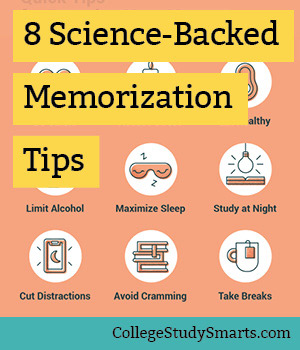Pulse of Information
Your source for the latest insights and updates.
Cramming is Out: Why Smart Study Habits are In
Ditch the last-minute cramming! Discover smart study habits that boost retention and transform your academic success. Unlock your potential today!
The Science Behind Smart Study Habits: Why Cramming Doesn't Work
The quest for efficient learning strategies often leads students to sharpen their skills in smart study habits. Cramming, the practice of intensively studying information in a short time frame, may seem effective for immediate recall, but research demonstrates that it is fundamentally flawed. Cognitive scientists argue that this method undermines long-term retention and deeper understanding of the material. Instead, spreading study sessions over time, known as spaced repetition, significantly enhances the brain's ability to retain complex information and facilitates better performance in assessments.
Furthermore, the science of learning reveals that cognitive processing is optimized through active engagement with the material. Techniques such as summarizing notes, teaching concepts to peers, and utilizing mnemonic devices not only reinforce learning but also promote stronger neural connections. By incorporating these smart study habits, students cultivate an environment conducive to mastery and retention, ultimately steering clear of the pitfalls of cramming, which can lead to stress and burnout as deadlines approach. Remember, consistency is key!

5 Effective Study Techniques to Replace Last-Minute Cramming
Many students find themselves resorting to last-minute cramming, which often leads to overwhelming stress and suboptimal retention of information. Instead, adopting effective study techniques can make a significant difference in both understanding and memory. Here are five strategies to help you study smarter and avoid the panic of cramming:
- Spaced Repetition: Break your study sessions into manageable chunks and revisit the material at regular intervals. This reinforces learning over time and improves long-term retention.
- Active Recall: Test yourself on the material rather than just reading it passively. Use flashcards or practice questions to actively engage with the content.
- Study Groups: Collaborate with peers to discuss topics, quiz each other, and explain concepts. Teaching others can solidify your own understanding.
- Mind Mapping: Create visual aids that outline relationships between concepts. This technique helps in organizing thoughts and improving recall.
- Schedule Study Sessions: Develop a study timetable that allocates regular intervals for each subject. Consistency reduces anxiety and enhances knowledge retention.
How Long Should You Really Study? Debunking Common Myths
Many students believe that the longer you study, the better your results will be. However, this myth can be misleading. While it may seem intuitive that cramming for hours leads to greater retention, studies show that quality often trumps quantity. For effective learning, it's crucial to focus on active study techniques, such as summarizing information, teaching others, or practicing problems, rather than simply reading or highlighting texts for extended periods. Finding a productive study routine, consisting of short, focused sessions with breaks, can lead to improved outcomes and better motivation.
Another common misconception is that you need to study every day to be successful. In reality, breaking up your study time can enhance retention and reduce burnout. Research indicates that spaced repetition — where you review material at increasing intervals — is a more effective strategy than daily studying. This approach not only helps reinforce knowledge but also allows your brain time to process information, making it easier to recall later. So don’t be afraid to schedule rest days into your study plan; it’s all part of the learning process!